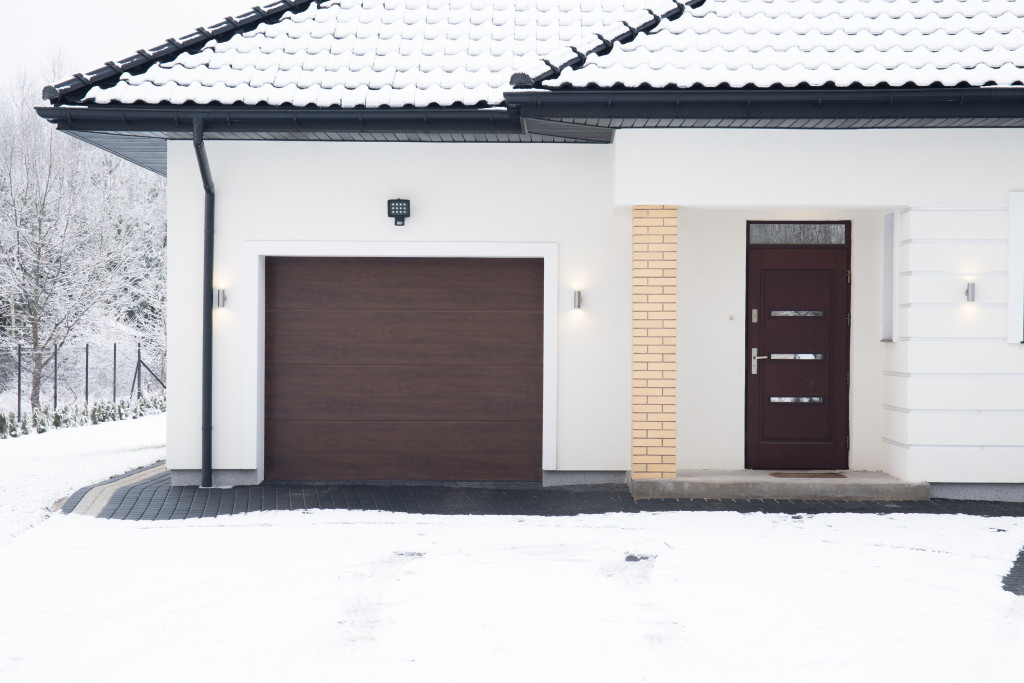Are you and your family members getting sick more often during the winter? If so, it’s not just a coincidence. During the colder months, people tend to spend more time inside, which makes them more susceptible to germs and viruses. Here are a few reasons your family might be getting sick this season—and what you can do about it.
Crowded Indoors Spaces
People tend to congregate indoors for warmth and comfort when the weather outside is cold. Unfortunately, these crowded indoor spaces can also be breeding grounds for contagious illnesses like the common cold or influenza. If you’re spending a lot of time indoors with other people this winter, take extra precautions by wearing a mask and washing your hands frequently. Here are three more ways to improve the space in your home to reduce infections.
Declutter
Clutter can lead to stress, and it can also lead to a lack of space. Instead, you can declutter your home by removing things you no longer need. This will make your space look better and help create more airflow and reduce the chance of germs and bacteria lingering in hard-to-reach places.
Organize
An organized home can be more spacious than a cluttered one. Utilize tools such as baskets or storage bins to store items orderly. This will do cleaning and disinfecting your home more accessible and more efficient.
Build Extensions
It might be time for your family to expand. Additions like porches and patios can give your family more space to spread out during the colder months. This will reduce the risk of germs spreading quickly among family members so that everyone can stay healthier this winter season.

Poor Home Maintenance
A home that is not well-maintained can become a breeding ground for disease-causing germs. It can also lead to colder and less insulated homes. You should check three parts of your home during the cold winter months.
Roof
A hole in the roof can lead to cold air flowing in, as well as moisture seeping through the ceiling. Check for any damage signs and repair them quickly so your home stays warm and healthy this winter. If the damage is too big, consider hiring an experienced roof replacement service to get your roof replaced. They can choose the suitable roofing material to match your home’s exterior.
HVAC System
Heating, ventilation, and air conditioning systems are essential for keeping your home warm during winter. Make sure you check your system regularly and replace any worn-out parts, so it runs efficiently and effectively throughout the season.
Drainage
Make sure that all your drains are properly maintained and cleaned. Unclog them if necessary so that water can flow freely. Poorly maintained gutters can lead to a buildup of water, which is an ideal habitat for germs and viruses.
Lack of Vitamin D
Vitamin D is essential for maintaining healthy immune systems and fighting off infections. During the winter months, however, fewer hours of daylight mean that people aren’t exposed to as much natural sunlight—which means they’re not getting enough vitamin D from the sun alone. Here are other ways to get vitamin D during winter:
Spend Time Outdoors
Find opportunities to spend time outdoors, even if it’s just for a few minutes. Even on cloudy days, there’s still enough sun exposure in the morning and afternoon to get some vitamin D.
Eat Foods Rich in Vitamin D
Include foods such as eggs, mushrooms, and salmon in your diet. You can also find vitamin D-fortified foods like cereal, orange juice, and milk to ensure you get enough of the nutrient.
Decreased Humidity Levels
Cold air tends to be dry air, which means humidity levels drop significantly indoors and out during the winter months. This low-humidity environment can make it easier for germs and viruses to spread from person to person because dry air doesn’t trap moisture as effectively as humid air. To help keep indoor humidity levels up during the winter, use a humidifier in your home regularly or add house plants (which naturally increase humidity) throughout your space.
As you can see, several factors contribute to an increased risk of illness during the winter months—but there are also ways you can fight back! Taking proactive steps such as wearing masks when out in public and increasing humidity levels at home can help reduce your chances of catching something this season—so keep these tips in mind as we move into colder weather! With careful planning and protective measures in place, you and your family can stay healthy all year round!

